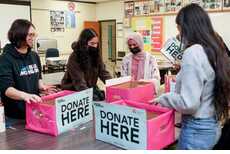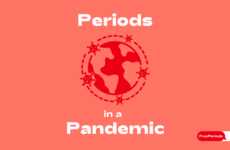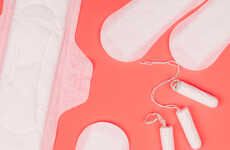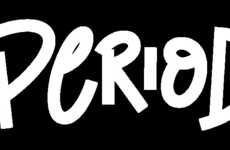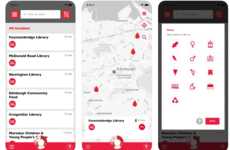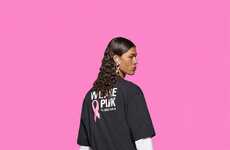
This Petitions Urges Schools to Offer Free Period Products
Grace Mahas — May 28, 2021 — Social Good
References: change.org
In light of Menstrual Hygiene Day (May 28), INTIMINA and I Support The Girls joined forces to call on Congresswoman Grace Meng, a fierce leader for women’s rights, to sponsor a bill that demands free menstrual hygiene products for women and girls in schools across the country.
Period poverty is a financial burden that affects millions of women and girls, impacting females of all ages and ethnicities. This problem "especially impacts young girls in schools who are often bullied at the slightest notion they might be menstruating." The initiative is calling for "change and expanded opportunities for women of all backgrounds to be able to menstruate equally and we’ll look to Congresswoman Meng to lead us to that freedom."
Period poverty is a financial burden that affects millions of women and girls, impacting females of all ages and ethnicities. This problem "especially impacts young girls in schools who are often bullied at the slightest notion they might be menstruating." The initiative is calling for "change and expanded opportunities for women of all backgrounds to be able to menstruate equally and we’ll look to Congresswoman Meng to lead us to that freedom."
Trend Themes
1. Free Period Products in Schools - Providing free menstrual hygiene products in schools can help alleviate period poverty and promote gender equity.
2. Menstrual Hygiene Awareness - Increasing awareness about menstrual hygiene can help reduce stigma and improve access to period products for all women and girls.
3. Public-private Partnerships for Menstrual Hygiene - Collaboration between government, NGOs, and private sector companies can help address the issue of period poverty and improve menstrual hygiene for women and girls.
Industry Implications
1. Personal Care Products - Companies in the personal care products industry can explore partnerships with government and NGOs to provide free or low-cost menstrual hygiene products to schools and other institutions.
2. Education - Schools and educational institutions can take the lead in promoting menstrual hygiene awareness and providing free period products to students.
3. Ngos - Non-governmental organizations can collaborate with government and private sector companies to advocate for policies that promote menstrual hygiene and provide access to period products for all women and girls, especially those in underserved communities.
1.2
Score
Popularity
Activity
Freshness

